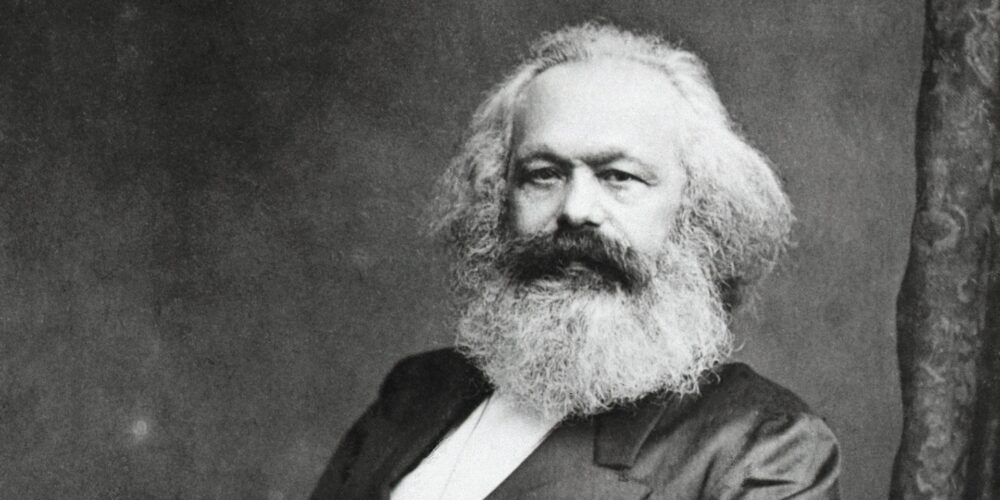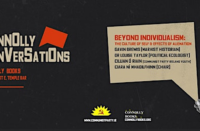Morality is meant to dictate that personal interests are not in conflict with social interests. Ethics form the framework within which people should act in a society. How does Marxism view moral principles?
Marx and Engels placed every moral principle in a historical context, not as an eternal principle but constructed in a social and historical process. Right and wrong are not eternal but shaped by material conditions and class relations. For example the moral principle that one should not steal would have come about with the rise of private property, without which there was no question of stealing. Thus stealing as an immoral act is possible in a society of “haves” and “have nots” (kleptomania excluded). Historians would say that the first clash in Palestine happened in the late 19th century when Jews who bought land were confronted by Palestinians who were stopped from grazing their cattle. For the Palestinians who were not used to private property and deprived of their common land, it was not immoral to fight the new owners of the land.
Monogamy as a moral concept is not natural to homo sapiens and is forced upon women by patriarchy which has origins in private property, which makes sure that the child is born to the property-owning male. Punctuality as a virtue is associated with the rise of the factory system in capitalism, for the production to go on uninterrupted the worker in next shift had to be on time, hence the erection of clock towers and invention of watches. Some of the traits we see in humans could be biological, viz. empathy and cooperation for survival but much of it is formed by social relations, as Marx points out: “Man is an ensemble of social relations.” This means that what we understand as human nature is formed by the aggregate of social relations.
Critics of Marxism say that it is only concerned with material conditions – productive forces and production relations – and cares nothing about moral values. Betrand Russell equates Marxist philosophy with violence and hatred of the bourgeois class, while some criticise Marxism as a philosophy based on the principle “the end justifies the means”, devoid of any morals.
Marx not only studied the capitalist mode of production but also the repercussions of the system on humans, nature and society. Marx says: “It is not the consciousness of men that determines their existence, but on the contrary their social existence determines their consciousness”. If human beings exist in a state of exploitation, they develop the consciousness to fight that state of exploitation. Hence their consciousness (and morality) is a result of their existence
Some thinkers like Immanuel Kant or Thomas Hobbes believed humans are naturally selfish. Hobbes justified coercion by the State in order to achieve a just society. Marx gave a different opinion: that a society becomes just when humans are allowed to fully express their human nature and control over the means of production, thus preventing alienation. Marx said that selfishness is not an immutable characteristic and in capitalism it is caused by the scarcity or the inability of the humans to enjoy the products of their labour. The reason they are not able to enjoy the products of their own labour is because they have to access it through an exchange value system, or in other words: possess and circulate money.
“The ideas of the ruling class are in every epoch the ruling ideas”: thus moralities develop to serve the interest of the ruling class. Marx was not against ethics per se but was strongly against class-based moralities. Marx’s ethics aren’t some moral commandments: he considers profit as an ethical question. In a bourgeois society profit is not immoral, but when Marx addressed profit it became an ethical question which led him to ponder: if someone profits, whose loss is it? With that question Marx goes deeper, which leads to the discovery of surplus value and exploitation by capitalists: the immoral basis on which capitalism stands. Marx’s morality is to free mankind from exploitation and create an ethics based on cooperation, not inhumane competition which alienates one man from the other.
Has Marx laid any moral principles? “Communists preach no morality at all”, says Marx in The German Ideology (1932): they struggle to create conditions where free humans express their real nature and do not consider fellow humans as a threat to survival, and to free society of all kinds of oppression: class, race, gender, caste.
Capitalism brings out the worst of human nature and the fight for socialism is also a fight to attain the best version of ourselves as human beings.






